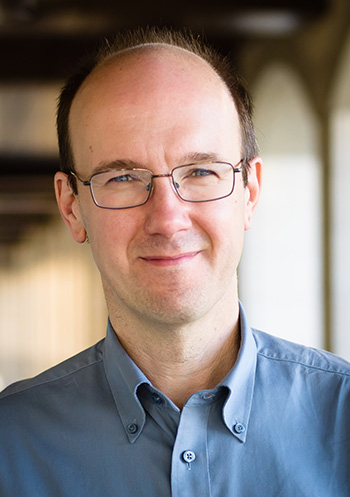Campus News
Astrophysicist Bruce Macintosh appointed director of UC Observatories
UC President Michael Drake has appointed Bruce Macintosh director of UC Observatories, an astronomical research unit headquartered at UC Santa Cruz and serving nine UC campuses.

University of California President Michael V. Drake has appointed Bruce Macintosh director of UC Observatories (UCO), an astronomical research unit headquartered at UC Santa Cruz and serving nine UC campuses. Macintosh, currently at Stanford University, will begin his five-year term September 1, 2022, and will join the UC Santa Cruz faculty as a professor of astronomy and astrophysics.
As director, Macintosh will oversee UC’s nationally and internationally renowned astronomical ecosystem that includes the Lick Observatory, the technical laboratories at UC Santa Cruz and UCLA, and UC’s partnership role in the W.M. Keck Observatory in Hawai’i.
Macintosh replaces Claire Max, professor emerita of astronomy and astrophysics, who retired in 2021 after leading UCO for seven years. Constance Rockosi, professor of astronomy and astrophysics at UCSC, has served as interim director since July 2021.
Macintosh has spent the past nine years as professor of physics at Stanford University and has served as deputy director of its Kavli Institute for Particle Astrophysics and Cosmology since 2018. An accomplished scholar, Macintosh has made significant contributions to science as principal investigator on numerous research grants for NASA, the National Science Foundation, and Lawrence Livermore National Laboratory, where he served prior to his post at Stanford.
“This is an exciting opportunity for the University and UC Observatories,” said President Drake. “Dr. Macintosh’s scientific expertise and research are at the forefront of our nation’s efforts to understand the cosmos. His commitment to diversity and his focus on groundbreaking research align with the University’s values, and they will strengthen our faculty research, expand our student experience, and take our prestigious program to even greater heights.”
Macintosh’s research centers on the study of extrasolar planets (also called exoplanets)—in particular, examining such planets through direct imaging and adaptive optics. Among his many accomplishments, he co-led the team that produced the first images of a system of exoplanets. He led the international collaboration that produced the Gemini Planet Imager, deployed to the Gemini South Telescope, which led to the identification of new exoplanets and advanced the study of planet formation. In addition, he directed a science investigation team for the coronagraph instrument on NASA’s Nancy Grace Roman mission. He has served on multiple National Academy of Sciences committees on astrophysics strategy, including the Astro2020 Decadal Survey.
“UC Observatories is one of the crown jewels of the University of California, and I am incredibly excited to have the privilege to lead this extraordinary multicampus program,” Macintosh said. “The telescopes we support are powerful tools for discovery, and astronomers at UC have done amazing things with them. In the next decade there are incredible scientific opportunities, and I look forward to working to continue UCO’s excellence and expand its impact on UC students, faculty, and scholarship in astronomy.”
Macintosh, who earned his Ph.D. in astronomy at UCLA, strongly believes in making the fields of astronomy and physics more inclusive, diverse, and supportive.
“Dr. Macintosh is well-poised to lead the diverse components that comprise UCO’s mission,” said Theresa Maldonado, UC vice president for research and innovation. “His expertise and leadership will continue to advance UCO astronomy on the international stage.”
Macintosh was selected after an extensive national search, launched by Maldonado and chaired by Beth Willman, deputy director of NOIRLab. The search committee included experienced astronomers and administrators from UC campuses and affiliate national labs and organizations.